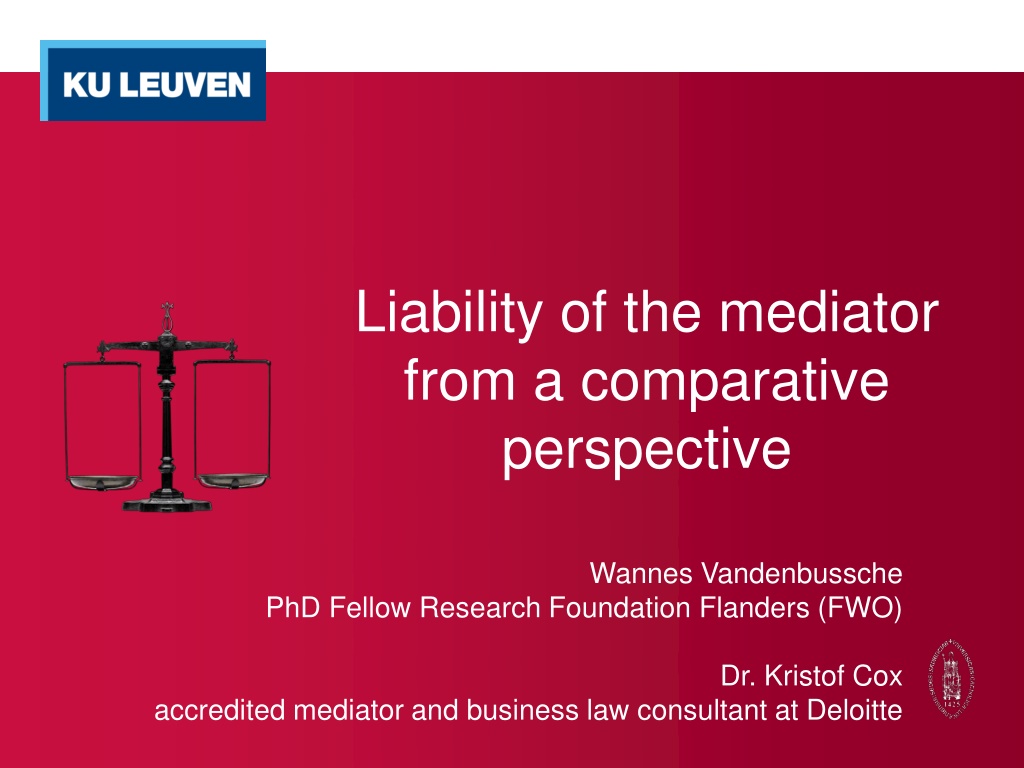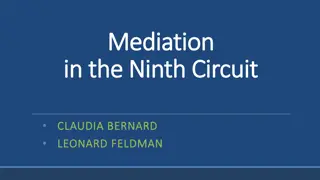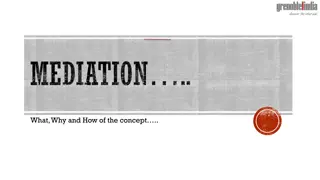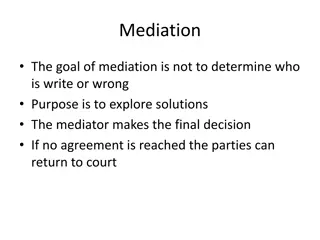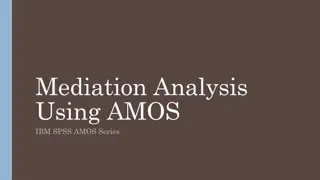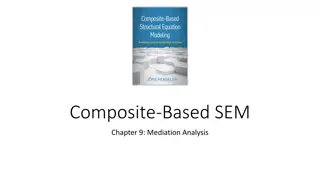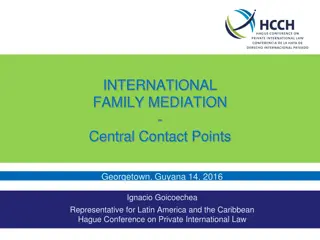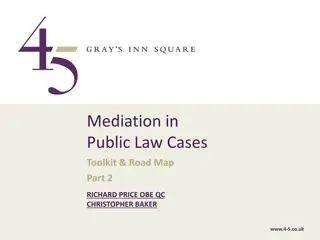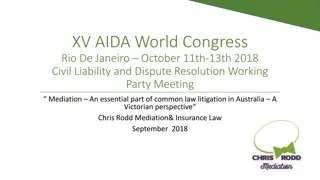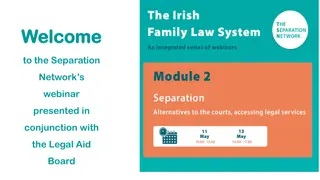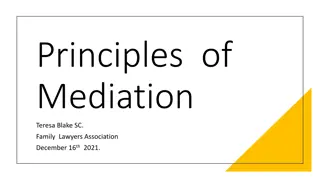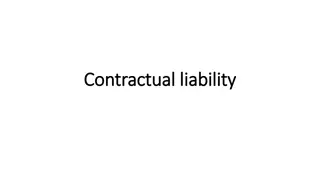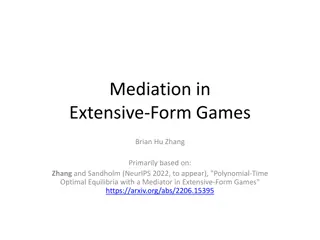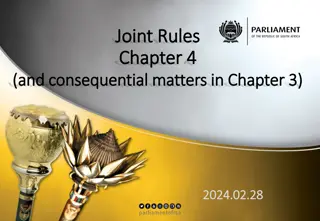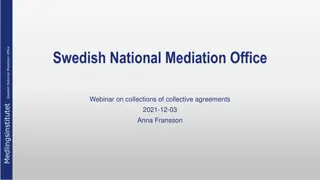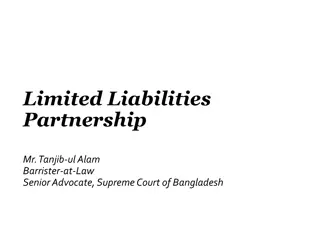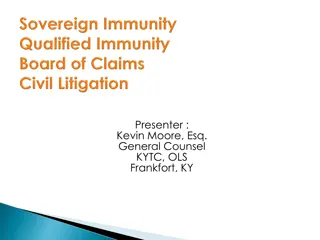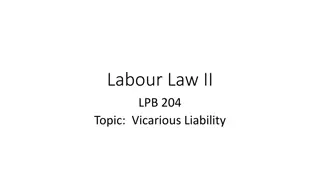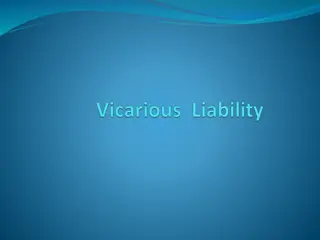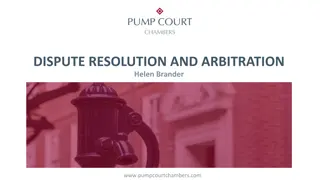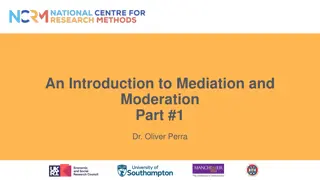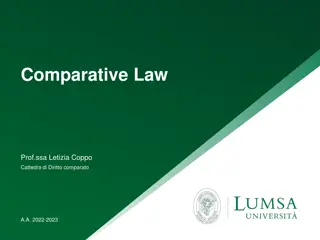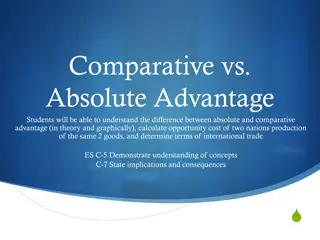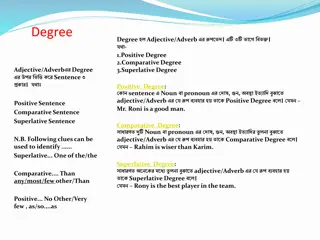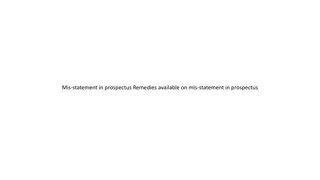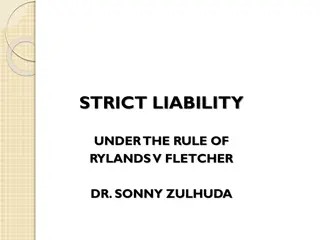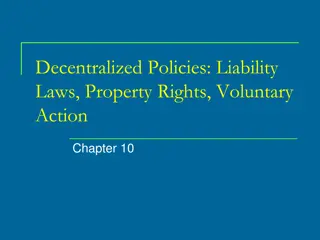Liability of the Mediator in Mediation Processes: A Comparative Perspective
Exploring the liability aspects of mediators in various jurisdictions, this academic session discusses different types of liabilities, submitting liability claims, and scenarios where mediators may face liability issues. It delves into contractual, tortious, and criminal liabilities, examining the nature of obligations, damages, and alternative ways to handle mediator liability.
Download Presentation

Please find below an Image/Link to download the presentation.
The content on the website is provided AS IS for your information and personal use only. It may not be sold, licensed, or shared on other websites without obtaining consent from the author. Download presentation by click this link. If you encounter any issues during the download, it is possible that the publisher has removed the file from their server.
E N D
Presentation Transcript
Liability of the mediator from a comparative perspective Wannes Vandenbussche PhD Fellow Research Foundation Flanders (FWO) Dr. Kristof Cox accredited mediator and business law consultant at Deloitte
Introduction T.M.C. J.B. P.J. www.zwarte-lijst-mediators.nl Mediation generally considered to be a low risk activity Relevance of session on liability No restrictions on liability (<-> immmunity: s. 12 Australian Mediation Act 1997, s. 44.107 Florida Statutes) Professional indemnity insurance (e.g. art. 19 (1) Austrian Mediation Act or by Mediation Association). Increasingly important method of dispute resolution
Agenda I. Liability of the mediator: an overview A. Three types of liability B. Alternative ways II. Submitting a liability claim, a Sisyphean task ? A. Nature of contractual obligations B. Mediation method C. Damages D. Causation E. Administration of evidence III. Mediation liability scenarios A. Duty of confidentiality B. Duty of impartiality and independence C. Duty of non-coercion
I. Liability of the mediator: an overview A. Three types of liabilty Contractual liability Tortious liability Criminal liability On basis of the mediation protocol / agreement (art. 1731 Belgian Jud.C.) Civil law: pre- contractual stage & court-annexed mediation Specific act or ommission is criminalised duty of professional confidentiality (expl. art. 31. (1) Austrian Mediation Act impl. art. 458 Belgian Penal Code Mediation as a service agreement (e.g. art. 7:400 Dutch Civil Code, Supply of Goods and Services Act 1982 England) Common law: professional negligence, breach of fiduciary duty
I. Liability of the mediator: an overview B. Alternative ways 1) Withdrawal from mediation Parties are allowed to cancel the mediation at any time (s. 2, para. 5 German Mediation Act, art. 1729 Belgian Jud.C.) o tucht 2) Disciplinary sanctions By the controlling or licensing organisation Different options (e.g. warning, reproach, temporary suspension, accreditation withdrawal, disqualification or removal from mediation) Possible disciplinary sanctions of bar association for lawyers o o o 3) Focusing on other actors Legal counsel (Mons 24 January 2002) Public Prosecutor (CA Rennes 10 June 2008) o o
II. Submitting a liability claim, a Sisyphean task ? A. Nature of contractual obligations Mediator does not owe the success of the dispute resolution Mainly obligations of means or best effort (Ct. Arnhem 25 May 2005) Some obligations of result o o o B. The mediation method Facilitative vs. evaluative (Ct. L beck 29 September 2006 <-> Ct. Rotterdam 12 september 2012) Clarify in mediation protocol (cf. art. 4.2. MfN-rules in the Netherlands) Information duties main profession o o o C. Damages No settlement agreement Settlement agreement (Ct. Rotterdam 12 september 2012) o o
II. Submitting a liability claim, a Sisyphean task ? D. Causation Direct and immediate effect Mediation as a cooperative process o o E. Administration of evidence mediation privilege - exclusion of evidence for parties Professional secrecy for the mediator (art. 7.6.c. MfN-regulation in the Netherlands) o o
III. Mediator liability scenarios A. Breach of duty of confidentiality Legislation (art. 1728 Belgian Jud.C.) or codes of conduct (art. 4 European Code of Conduct) Making information public E.g. opinion about participant to third parties (Ct. Arnhem 25 May 2005) Problem: quantifiable damages o o o B. Breach of duty of impartiality and independence Legislation (art. 21-2 of the French Law of 8 February 1995) or codes of conduct (art. 2 European Code of Conduct) Difference Impartiality: unbiased during mediation session Independence: any pressure from the outside Obligation of best effort Opinion about a non-crucial point (Ct. Arnhem 25 May 2005) Adressing the substance of an issue without opinion other party (Ct. The Hague 8 July 2015) o o o
III. Mediator liability scenarios Clarity and transparency (art. 2.1. European Code of Conduct) o Enabling parties to take corrective measures Retain mediator on mutual agreement (exc. s.3 (2) German Medation Act) Also after mediation (e.g. art. 16 Austrian Mediation Act) Damages and causation o Impartiality: failed mediation procedure Indpendence: after signing settlement agreement C. Breach of duty of non-coercion 80 % succesful mediations Duty of reticence (Tapoohi v. Lewenberg) o https://encrypted-tbn3.gstatic.com/images?q=tbn:ANd9GcSKJQHZONCewGn5XCm7M3LXmC8nHwAO9Zwu-VKBSwZYIklRULzgtA o
Conclusion A sword of damocles versus a Sisyphean task Case law is scarce, but is existing Importance of professional indemnity insurance Influence on behaviour?
Questions? Wannes.Vandenbussche@law.kuleuven.be
